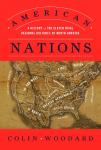
What used to be called “mercy killing” has become acceptable. Some U.S. states allow physicians to prescribe life-ending drugs under certain circumstances. Some nations allow physicians to administer these drugs.
Overall I think this is a good thing, but recently stories have been coming out of Canada that indicate that its MAiD (medical aid in dying) program is used as a substitute for providing welfare assistance for the poverty-stricken elderly poor. There are only a handful of these cases on record, and the facts aren’t clearcut, but they are important as possible precedents.
Most of the world’s rich countries have a big problem of paying for medical care for their increasing elderly populations. It is easy to imagine assisted suicide programs as solutions to that problem.
Canada’s MAiD program is one of the world’s most extensive such programs. In 2021, it was used by 10,058 Canadians – about 3 percent of Canada’s recorded deaths that year.
When it started in 2016, the MAiD program required that applicants’ deaths be “reasonably foreseeable.” Now it is available to anyone who has a “serious and incurable illness, disease or disability” that is irreversible with “enduring and intolerable” suffering. Next year Canada is expected to allow MAiD for mental health reasons. It is considering allowing euthanasia for “mature” minors – children under 18 who meet the same requirements as adults.
The safeguards are that applications have to be approved by two physicians, the process takes 90 days and, in theory, applications are not to be approved if they are for reasons of inadequate financial and social support.
But Conor Gallagher and Alexander Raikin, in articles linked below, give examples of how lack of financial and social support tipped the balance for people who were able to cope with their medical problems.
For example, a man in Medicine Hat named Les Landry had his disability benefits cut off when he reached age 65 and started receiving an old age pension, for some obscure reason. The latter isn’t enough to cover his needs, so he is going to apply for MAiD. “I really don’t want to die,” he said. “I just can’t afford to live.”
He has medical problems that qualify him for MAiD. But that’s not the reason he’s using it.
Canada offers a suicide hot line, where counselors try to offer hope to people who are thinking of committing suicide. It also offers a hot line for people who are seeking medical assistance in dying.
One man was hospitalized because he had suicidal tendencies. When in the hospital, he was euthanized under the MAiD program.

















